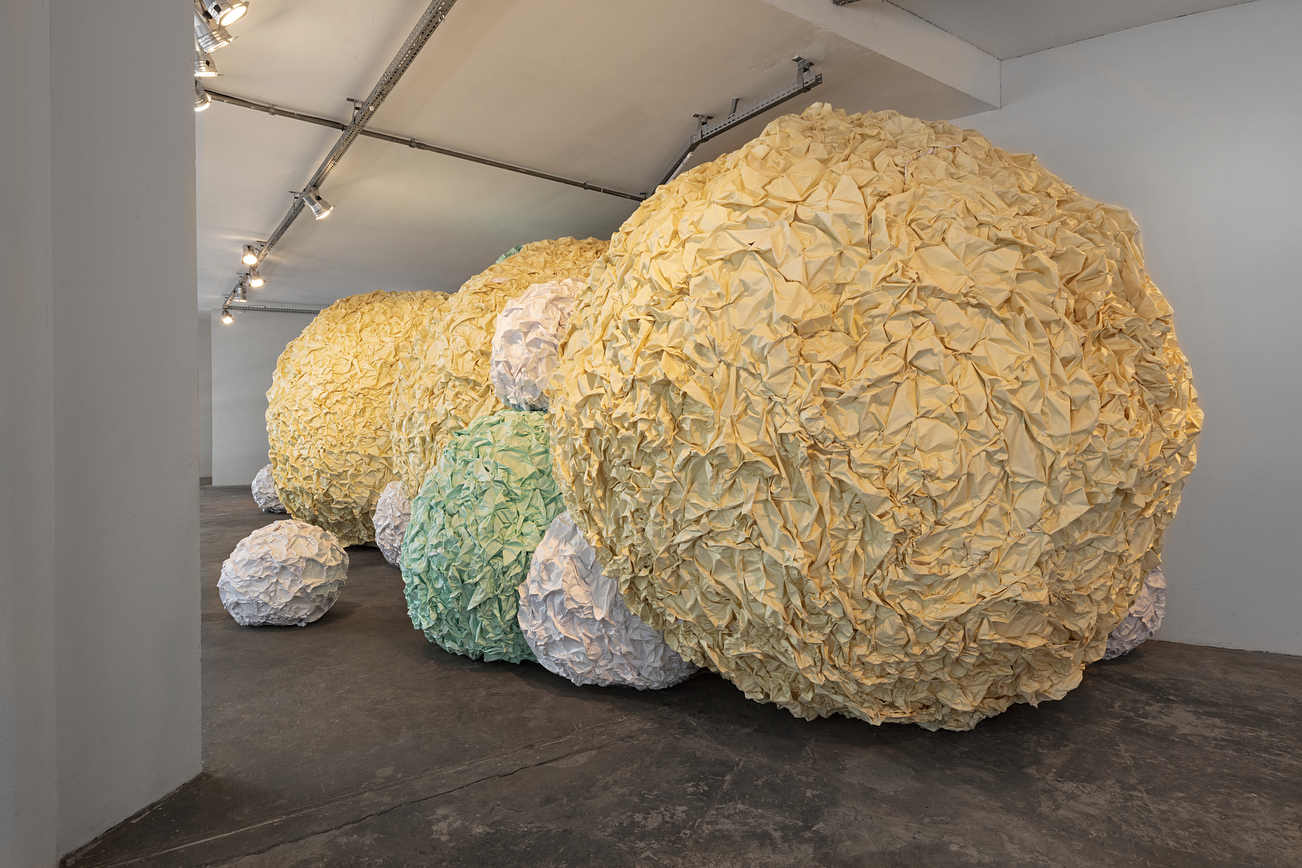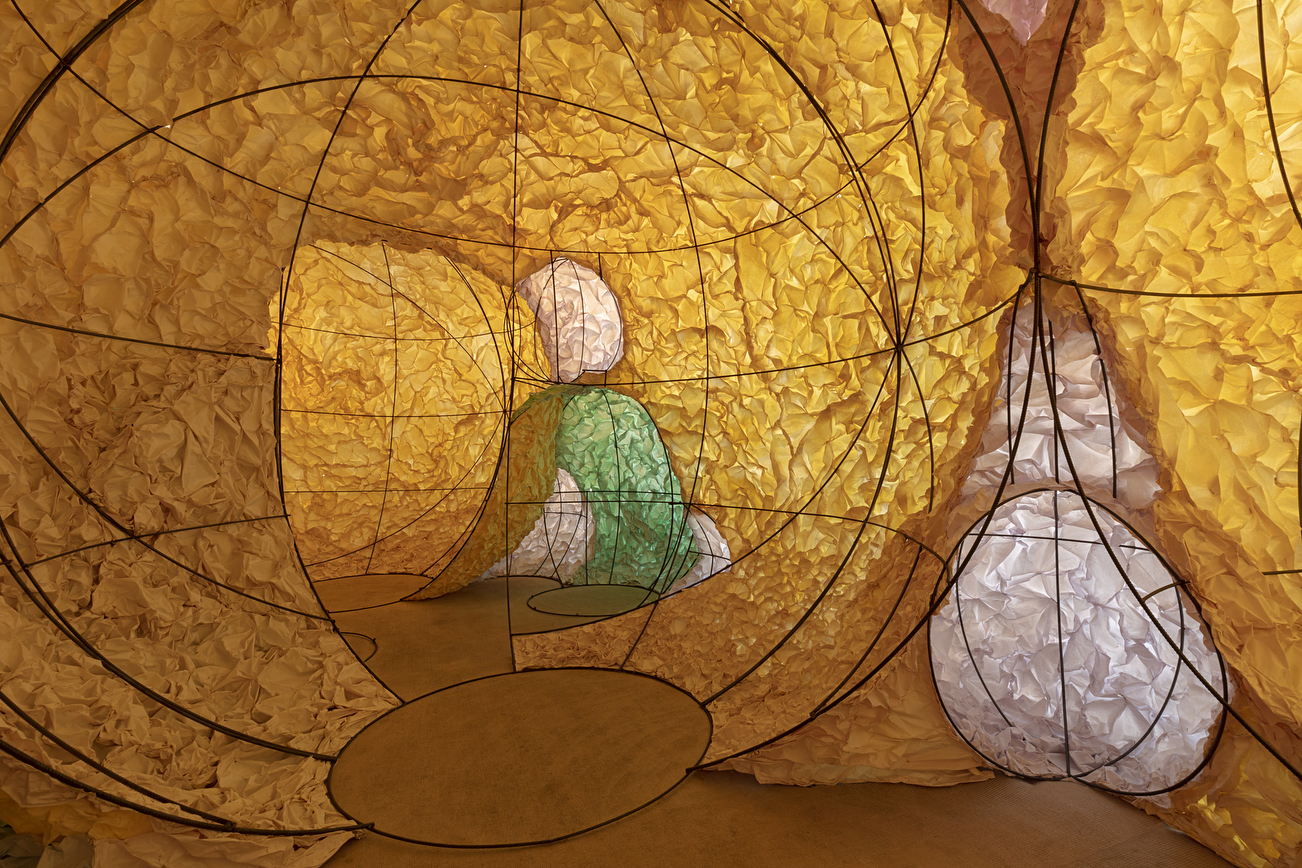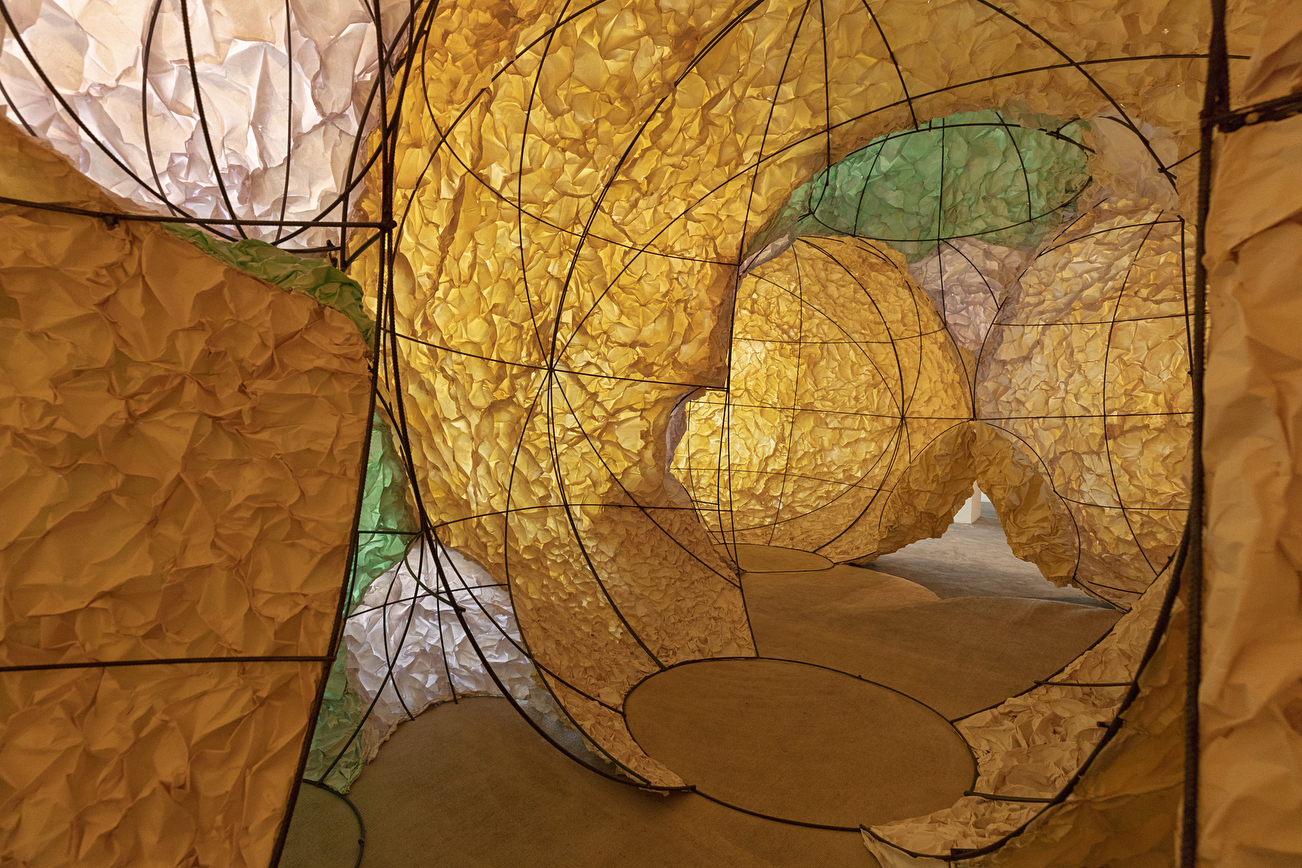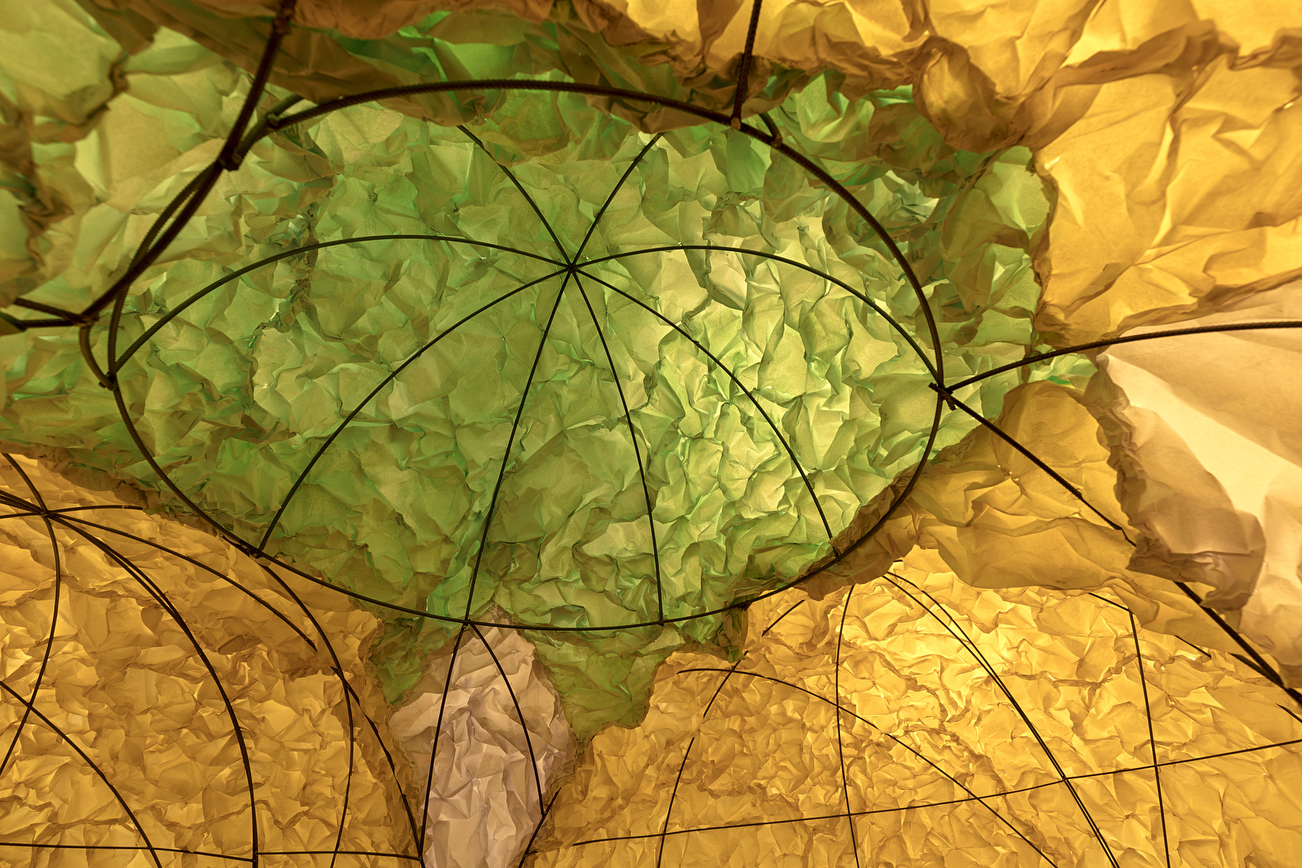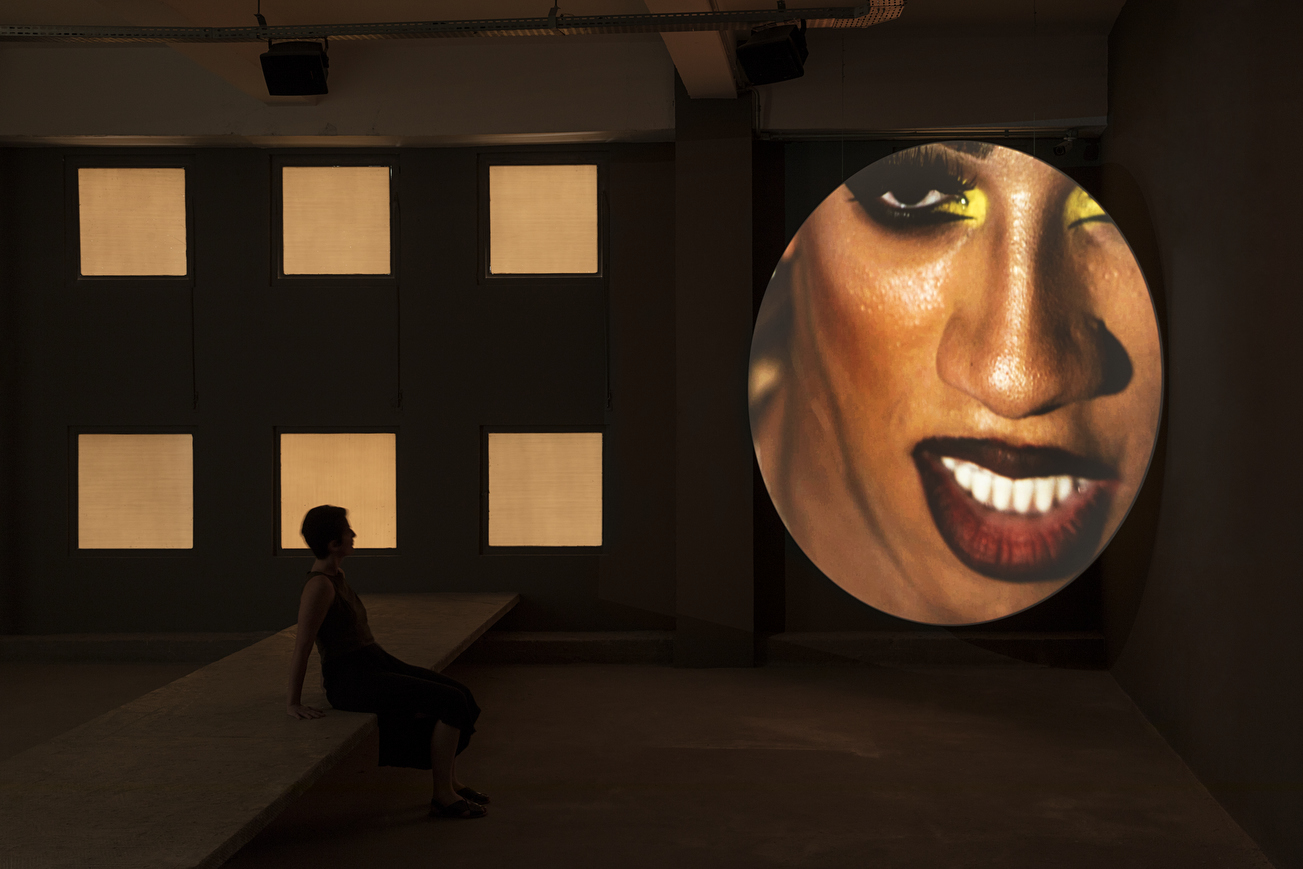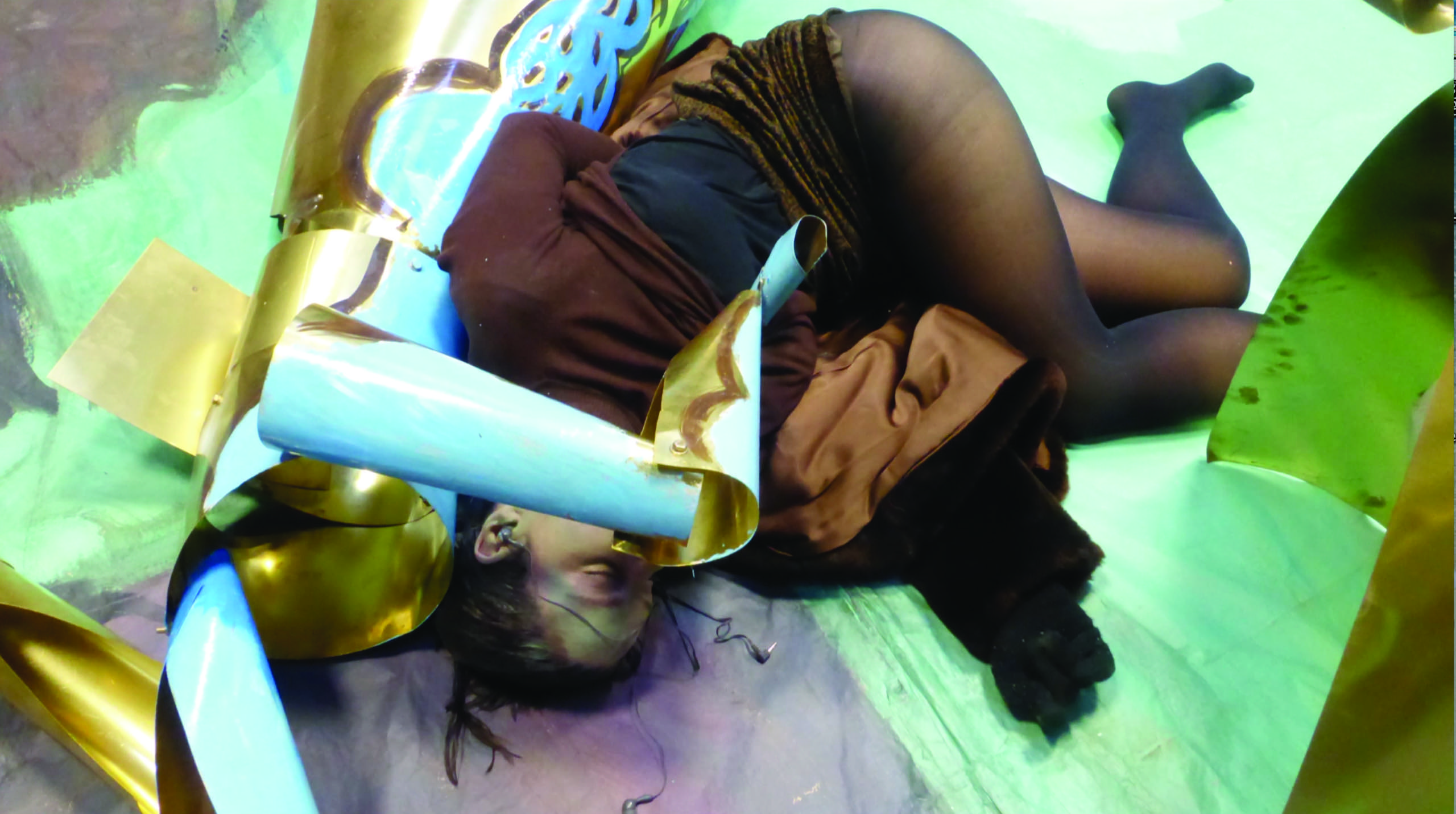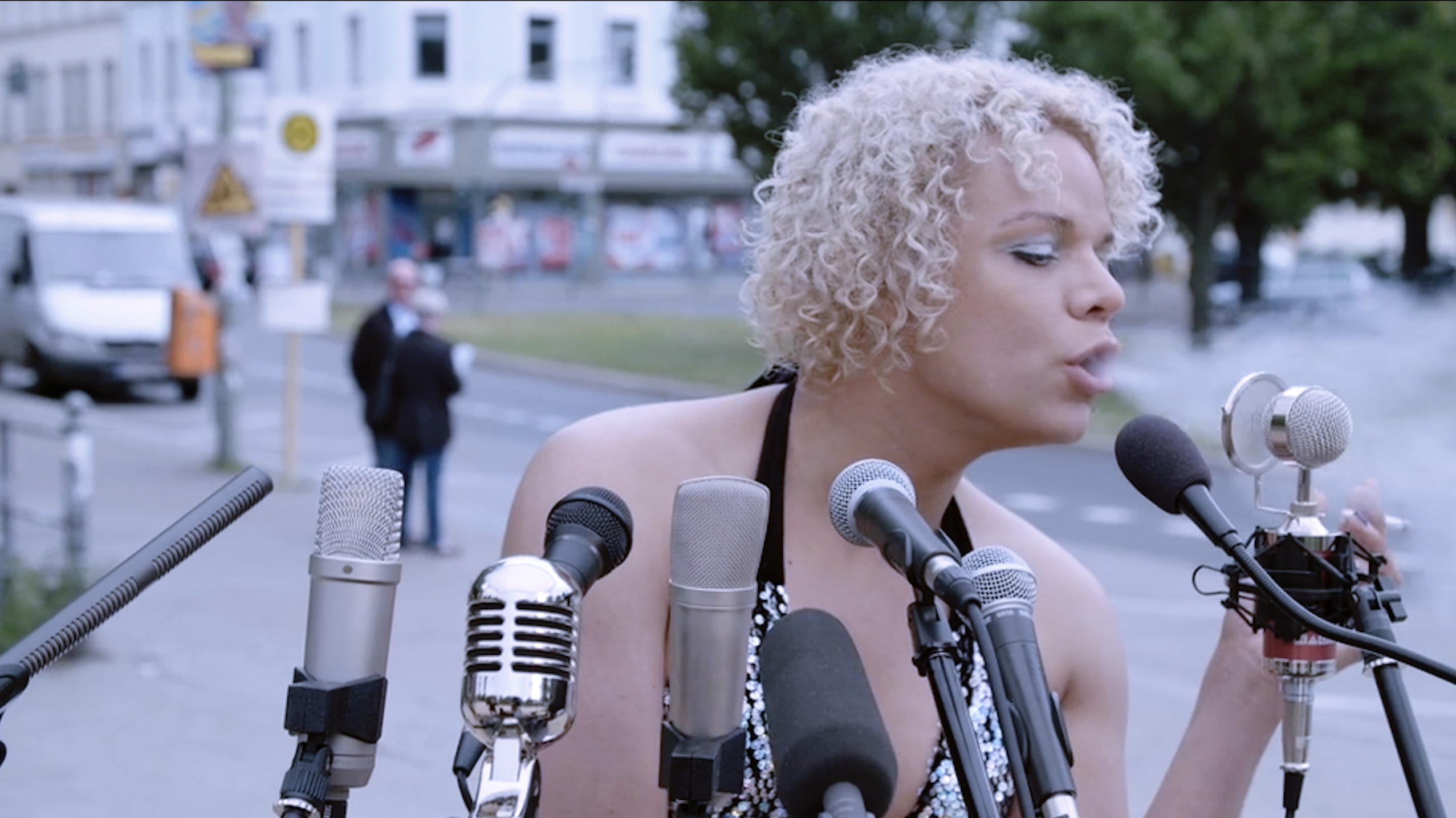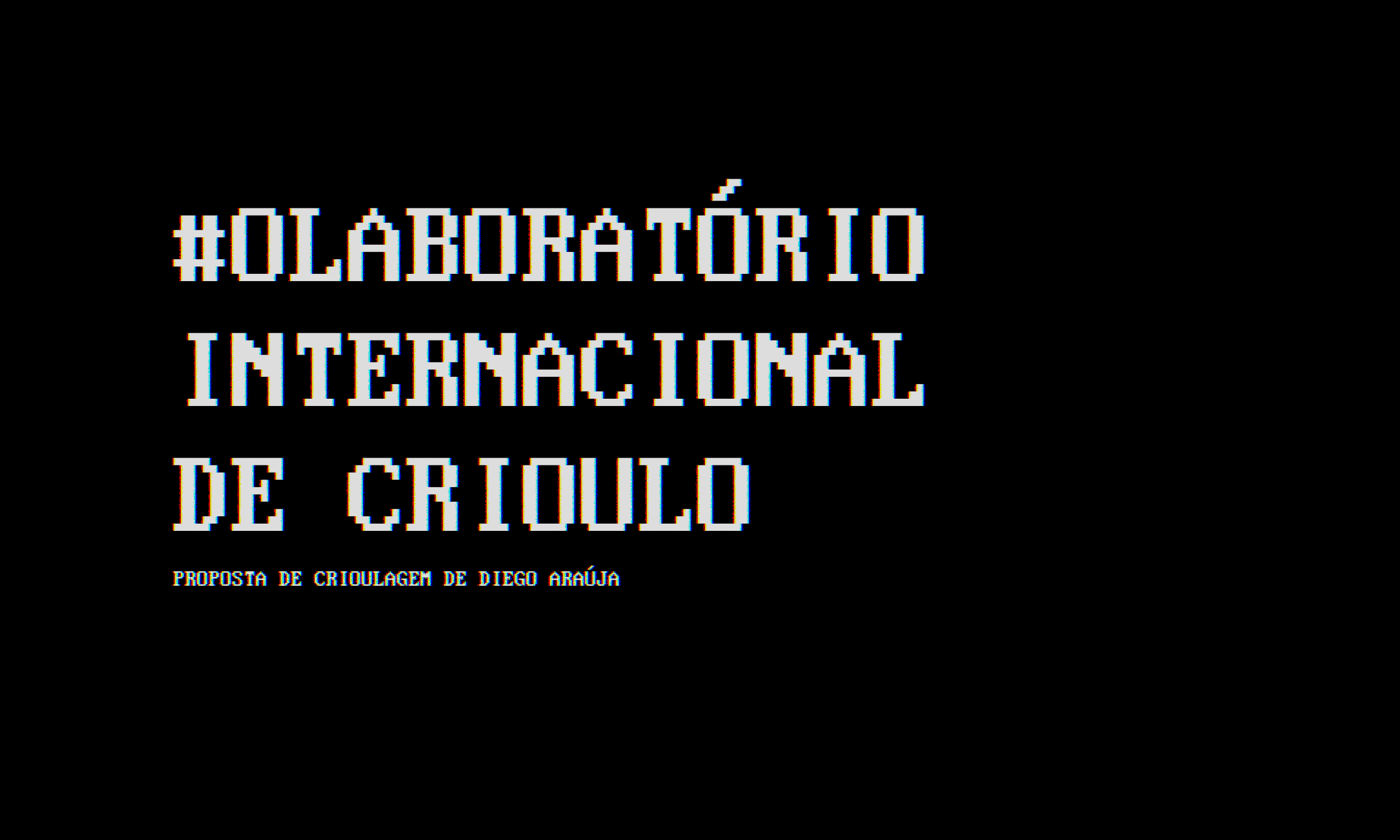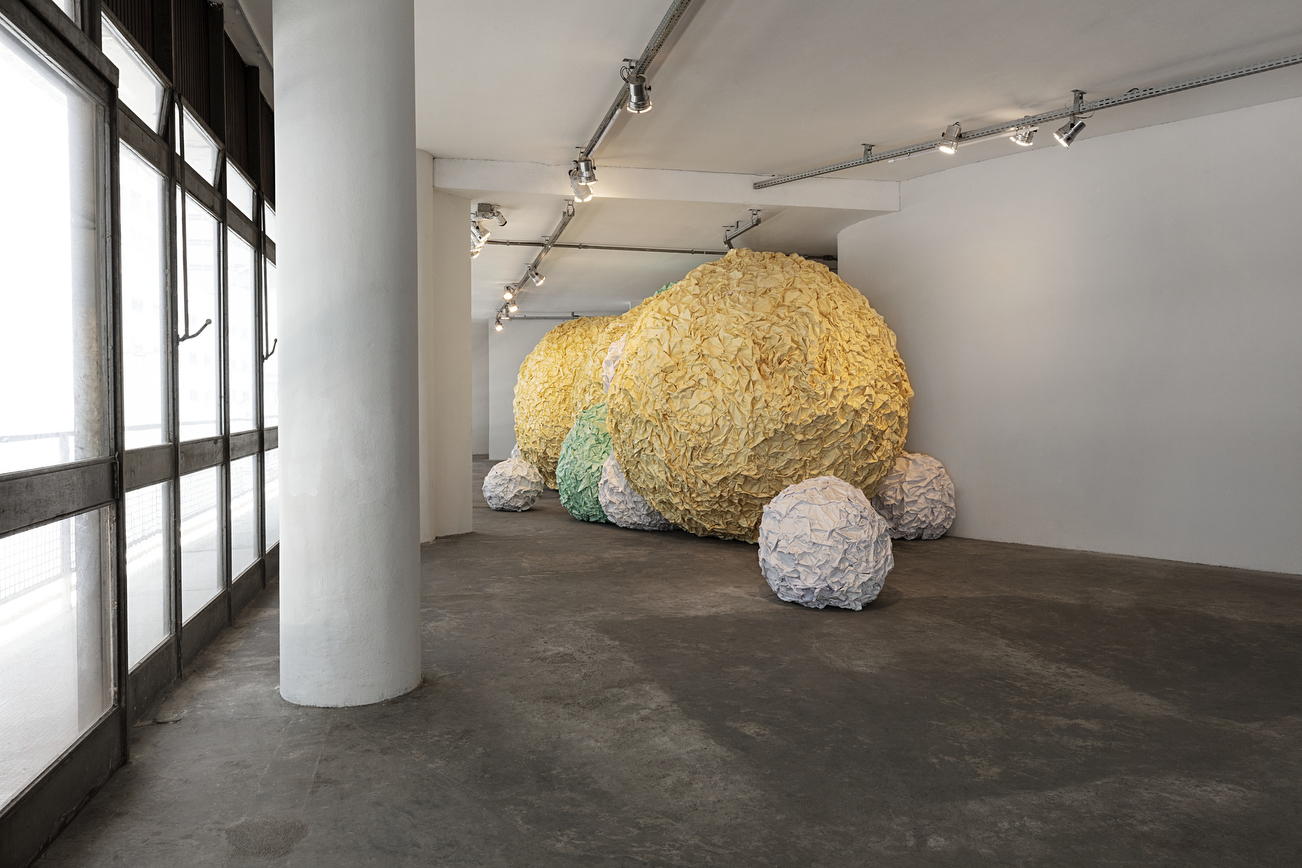
In “In Vivo”, the French artist Caroline Mesquita will present at Pivô a series of works created especially for her first exhibition in Brazil. The exhibition, curated by French curator Dorothée Dupuis, is expected to open on August 1st (to be confirmed) and is an unfolding of the show presented in the context of the Fondation d’entreprise Ricard award, in Paris, in 2017.
Mesquita will show a video installation composed of a large “mother cell”, in which the viewer will have to enter to watch a film commissioned for the exhibition. The work resembles a scientific documentary as if we were observing situations under the microscope. “It is a ballad within the human body”, reveals Mesquita, “bringing together blood cells, bacteria, viruses and many other microorganisms in abstract and colourful landscapes”.
Caroline Mesquita has been developing since a few years ambitious video installations, of which many sculptural elements are characters of the films, as the artist herself (in her first productions) and many protagonists as silent as anonymous. The stories of the videos are pretexts for building ever more complex sculptural environments―unless it is precisely the contrary, the objects inspiring Mesquita’s animated “tales”. Produced in stop-motion, the films have Melièsque accents but are also inspired by the Polish avant-garde of the 70’s cartoon, among other sources of inspiration.
For the exhibition at Pivô, her first in Brazil, Caroline Mesquita distanciates herself from the large rolled metal figures of her beginnings, and the noble materials (copper, brass) that composed them, to get immersed in the manipulation of cardboard, paper and plastic, so-called “poor” materials and carrying a rougher aesthetic, leaving more room for the fragile and the ephemeral. With this new video, an oniric exploration of the inside of the body, once again micro-dramas will flirt with burlesque, as human body cells and DIY worlds dissolve into one another. Mesquita here wishes to make us attentive to the details, the textures, the sounds, the pulsations that irrigate the living. As a form of meditation, and far from the theoretical discourses that one would be tempted to project on her practice, and in troubled political times which vainly seek in art an answer to insoluble problems, the artist prefers to oppose the utopia of a possible reconnection to the physical realities of our world through the physical sensations that it triggers in us.
The realization of “In Vivo” is a co-production between Pivô and the Fondation d’entreprise Ricard and has also the support of Institut Français, The General Consulate of France in São Paulo and Triangle France – Astérides.
ABOUT THE ARTIST
Caroline Mesquita graduated from the École des Beaux-Arts de Paris in 2013. Her work has been featured in various group exhibitions, including: “Europe Europe”, Astrup Fearnley Museet (Oslo, 2014); “The Space Between Us”, Fahrenheit (Los Angeles, 2014); “Good feelings – 19th Prix Ricard”, Ricard Corporate Foundation (Paris, 2017); “Here are flowers”, La Loge (Brussels, 2018); “Cosmologic Arrow”, Bonniers Konsthall (Stockholm, 2019) and “Futur, Ancien, Fugitif”, Palais de Tokyo (Paris, 2019).
ABOUT THE CURATOR
Dorothée Dupuis (Paris, 1980) is a contemporary art curator, art critic and publisher. Her practice focuses mostly on the intersection of arts and politics and is informed by feminist, post-Marxist, and decolonial theories. Dupuis is the director and founder (2013) of the magazine Terremoto.mx, based in Mexico City. Prior to moving to Mexico City in 2012, she was director of Triangle France, a non-profit exhibition and residency program in Marseille, France, from 2007 to 2012, and assistant-curator at the Centre Pompidou from 2005 to 2007. Since 2012, Dupuis is curating independently and has been writing about art in the Americas as much in Terremoto as in international publications.

 Português
Português